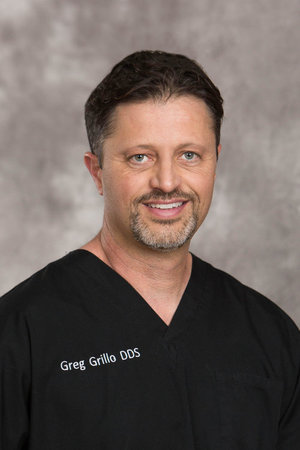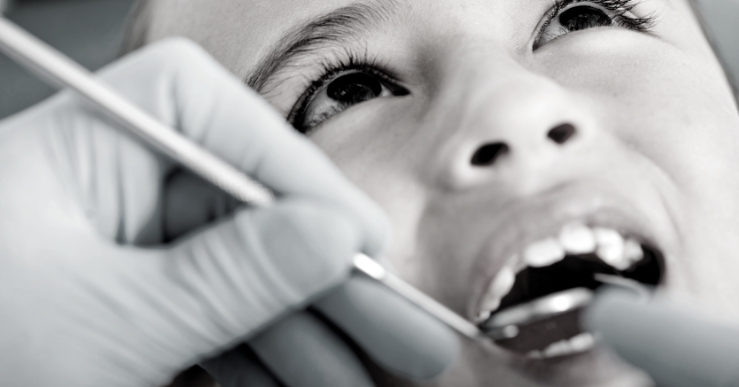The Most Common Dental Issues Seen in Patients with Autism
1
Dental issues are serious conditions that can occur in anybody. Most can be prevented by practicing good dental hygiene. However, because of sensory issues, oral health for patients with autism can be difficult. I’ve been practicing family dentistry for 17 years and my staff and I personally work closely with patients and their needs. Each person is different, and we like to accommodate their specific needs the best we can. I like to make families aware of some of the common dental issues that occur in patients with autism so they can work to treat
SelfishMother.com
2
or prevent them.
1. Early or Late Tooth Decay
Tooth decay is a common dental issue that can happen to anyone. It’s caused by acidic damage to the tooth structure produced by bacteria that live in plaque and causes tooth pain. In patients with autism, some have difficulties communicating their pain which may make it harder to discover that tooth decay is happening.
There are many resources available to find an amazing special needs dentist. Your primary health care provider may have recommendations on dentists that specialize in working with
SelfishMother.com
3
patients with autism. Ask anyone you know with children or family members that are autistic. They may have some great recommendations for dental care. Going online is also a great way to find the right dentist. The American Dental Association is a great resource because it allows you to search for dentists by location and specialty.
2. Gingival Overgrowth
Patients with autism may suffer from Gingival overgrowth. This condition is an abnormal overgrowth of the gingival tissues. Gums affected by this are often tender, soft, red, and bleed easily.
SelfishMother.com
4
Effective oral hygiene practices such as tooth brushing and flossing can sometimes help with this condition.
Having a great toothbrush can make having a dental care routine easier. A brush with soft, natural bristles may help with any sensitivity one feels when brushing their teeth.
3. Severe, Early Periodontal Gum Disease
Periodontal gum disease damages the soft tissue and destroys the bone that supports your teeth. It’s a common oral condition that can be preventable with proper care. You may notice symptoms such as sensitive, swollen or
SelfishMother.com
5
puffy gums and loose teeth.
For those with autism who suffer from periodontal gum disease, it’s essential that they brush twice a day, floss, and visit a dentist regularly. This can improve their chance of successful treatment. Building a dental care routine can be difficult, especially if there are any anxieties surrounding it. However, it’s important not to give up. Figure out how to make it more enjoyable and stay persistent.
4. Constant Teeth Grinding, or ”Bruxism”
Constant teeth grinding, or bruxism, especially over a long period of
SelfishMother.com
6
time can put patients with autism at risk for even greater dental issues such as jaw pain and worn down teeth. It may be difficult to break this habit, especially if the habit is anxiety related. Being patient and trying to break the habit is the best way to avoid any further damage.
5. Pits, Discoloration, Lines, or Other Developmental Defects in Teeth
Pits, discoloration, lines, and other developmental defects are common amongst individuals with autism. A pit is a small depression on the surface of the tooth mostly found on the teeth in the back
SelfishMother.com
7
of the mouth. Discoloration is yellowing or browning of the tooth. Lines are tiny fractures in the enamel that cause vertical lines on the teeth.
These conditions are usually genetic, so preventing them is difficult. Luckily, there may be options for treatment. A simple teeth whitening can help lessen many of these conditions, but composite resin or porcelain veneers can also be used. Discuss treatments with your dentist to find what will be best.
Most dental issues can be easily treated or prevented. For patients with autism, it may be more
SelfishMother.com
8
difficult to resolve oral related conditions. Becoming comfortable with basic dental care and developing a good relationship with a special needs dentist can help to deal with any issues that you may face. The most important thing to remember is how essential it is to instill good dental hygiene practices from a young age for a healthy mouth for life.
SelfishMother.com
This blog was originally posted on SelfishMother.com - why not sign up & share what's on your mind, too?
Why not write for Selfish Mother, too? You can for free and post immediately.
We regularly share posts on @SelfishMother Instagram and Facebook :)
Greg Grillo - 11 Mar 19

Dental issues are serious conditions that can occur in anybody. Most can be prevented by practicing good dental hygiene. However, because of sensory issues, oral health for patients with autism can be difficult. I’ve been practicing family dentistry for 17 years and my staff and I personally work closely with patients and their needs. Each person is different, and we like to accommodate their specific needs the best we can. I like to make families aware of some of the common dental issues that occur in patients with autism so they can work to treat or prevent them.
1. Early or Late Tooth Decay
Tooth decay is a common dental issue that can happen to anyone. It’s caused by acidic damage to the tooth structure produced by bacteria that live in plaque and causes tooth pain. In patients with autism, some have difficulties communicating their pain which may make it harder to discover that tooth decay is happening.
There are many resources available to find an amazing special needs dentist. Your primary health care provider may have recommendations on dentists that specialize in working with patients with autism. Ask anyone you know with children or family members that are autistic. They may have some great recommendations for dental care. Going online is also a great way to find the right dentist. The American Dental Association is a great resource because it allows you to search for dentists by location and specialty.
2. Gingival Overgrowth
Patients with autism may suffer from Gingival overgrowth. This condition is an abnormal overgrowth of the gingival tissues. Gums affected by this are often tender, soft, red, and bleed easily. Effective oral hygiene practices such as tooth brushing and flossing can sometimes help with this condition.
Having a great toothbrush can make having a dental care routine easier. A brush with soft, natural bristles may help with any sensitivity one feels when brushing their teeth.
3. Severe, Early Periodontal Gum Disease
Periodontal gum disease damages the soft tissue and destroys the bone that supports your teeth. It’s a common oral condition that can be preventable with proper care. You may notice symptoms such as sensitive, swollen or puffy gums and loose teeth.
For those with autism who suffer from periodontal gum disease, it’s essential that they brush twice a day, floss, and visit a dentist regularly. This can improve their chance of successful treatment. Building a dental care routine can be difficult, especially if there are any anxieties surrounding it. However, it’s important not to give up. Figure out how to make it more enjoyable and stay persistent.
4. Constant Teeth Grinding, or “Bruxism”
Constant teeth grinding, or bruxism, especially over a long period of time can put patients with autism at risk for even greater dental issues such as jaw pain and worn down teeth. It may be difficult to break this habit, especially if the habit is anxiety related. Being patient and trying to break the habit is the best way to avoid any further damage.
5. Pits, Discoloration, Lines, or Other Developmental Defects in Teeth
Pits, discoloration, lines, and other developmental defects are common amongst individuals with autism. A pit is a small depression on the surface of the tooth mostly found on the teeth in the back of the mouth. Discoloration is yellowing or browning of the tooth. Lines are tiny fractures in the enamel that cause vertical lines on the teeth.
These conditions are usually genetic, so preventing them is difficult. Luckily, there may be options for treatment. A simple teeth whitening can help lessen many of these conditions, but composite resin or porcelain veneers can also be used. Discuss treatments with your dentist to find what will be best.
Most dental issues can be easily treated or prevented. For patients with autism, it may be more difficult to resolve oral related conditions. Becoming comfortable with basic dental care and developing a good relationship with a special needs dentist can help to deal with any issues that you may face. The most important thing to remember is how essential it is to instill good dental hygiene practices from a young age for a healthy mouth for life.
Did you enjoy this post? If so please support the writer: like, share and comment!
Why not , too? You can share posts & events immediately. It's free!

Dr. Greg Grillo was born and raised in the Okanogan Valley in Washington state. Dr. Grillo spent eight years at the University of Washington and received a bachelor’s degree with honors before attending the School of Dentistry on the same campus.
From there he was selected for a Health Profession’s Scholarship by the United States Navy where he served as a dental officer for four years.
While in the navy, Dr. Grillo served tours in South Carolina and Japan, treating families of squadron military members and receiving advanced training in multiple areas of specialized dentistry. In 1999, after completing more than 300 hours of this additional formal education, he returned home to join the practice of his father, Dr. Jerry Grillo (Grillo-Robeck Dental).
Dr. Grillo has continued his practice in North Central Washington for more than 17 years, balancing his clinical practice with a role as the Content Director at a rapidly growing dental software company and freelance dental copywriting.
He especially enjoys caring for growing families in his practice and remains passionate about incorporating new technologies into his work that enhance the patient experience.
LIST





















